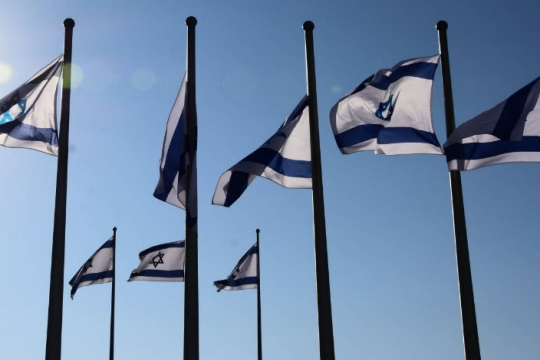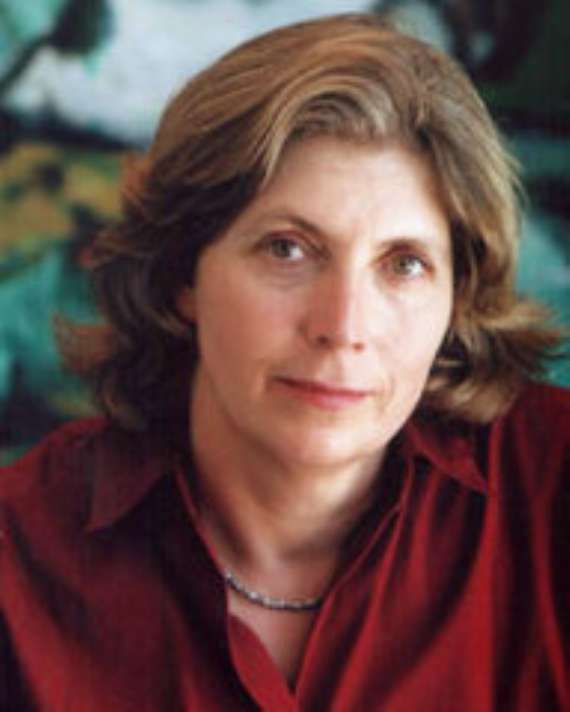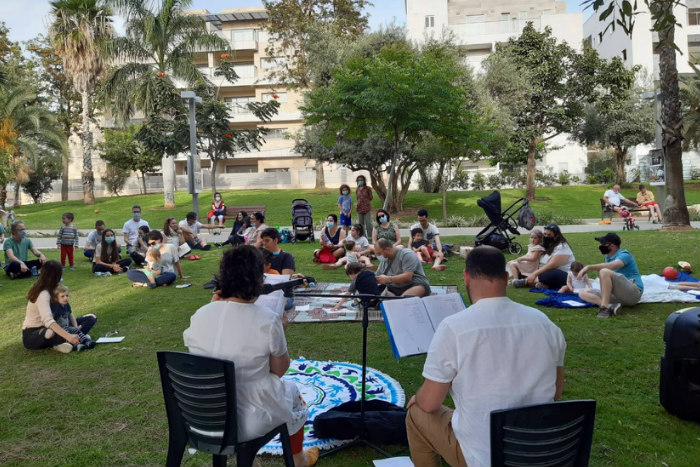
Kodesh VeChol in Holon, Israel, holds services in a public park
Congregations affiliated with the Israel Movement for Progressive and Reform Judaism (IMPJ) provide services far beyond prayer services on Shabbat and holidays. Many act as community centers. They have schools, preschools, and kindergartens, and hold all kinds of volunteer activities, groups for bar and bat mitzvah-aged children and their families, dialogue activities with Arab neighbors, volunteer delegations, and delegations to summer camps.
These congregations are very successful at bringing together their surrounding communities. Yet like their counterparts worldwide, IMPJ congregations are struggling financially because of the COVID-19 pandemic.
They are facing more challenges now than ever. Parallel to their financial problems, they have been continuously discriminated against by municipalities, local councils, and other local leaders, which drag their feet and prevent or deny Reform congregations space to pray.
The Israel Religious Action Center (IRAC) provides legal support to IMPJ congregations in their efforts to acquire a permanent prayer space. We have been representing some of them for more than a decade. Up until now, they have been holding services in any available space – schools, community centers, nursing homes and senior centers, public parks, and outdoor spaces in the middle of the hot Israeli summer – while waiting for land allocations.
Some of these congregations, such as Yuval Gedera Congregation (based in Gedera) and Kehilat Bavat Haayin (based in Rosh Haayin), are the only non-Orthodox congregations in their towns. Both are small communities run almost exclusively by lay leadership, with minimal rabbinic staff. In both cases, the local authority has refused to allocate them land for a synagogue.
IRAC went to court multiple times on their behalf, and the respective local authorities continue to ignore court rulings in our favor. Instead, they have done everything in their power to prevent these congregations from acquiring a land allocation and a permanent prayer space. We filed another petition on behalf of Yuval Gedera Congregationa few weeks ago (their third legal petition in a decade), and we are preparing further legal action on behalf of Kehilat Bavat Haayin if the municipality does not provide land for a synagogue following their council meeting in September.
For other congregations, such as Kehilat Shoham (based in Shoham) and Kodesh VeChol (based in Holon), the municipalities are seemingly on their side, but external factors have caused foot-dragging and backing out of promises of building allocations.
Until last year, the local authority of Shoham required the congregation to pay rent for their temporary prayer space while not charging its Orthodox counterparts. On the other side, the community in Holon has had to pray in public parks due to the lack of appropriate prayer space. Shoham has a council meeting scheduled for the end of the summer and we are preparing to take legal action if there is no progress towards a suitable prayer space.
IRAC will continue to represent each of these congregations in their legal disputes against their municipalities and local authorities for as long as necessary. Learn more by following along at IRAC.org.
To learn more about the work of the Israel Religious Action Center, visit irac.org and subscribe to its weekly email newsletter, The Pluralist.
Related Posts
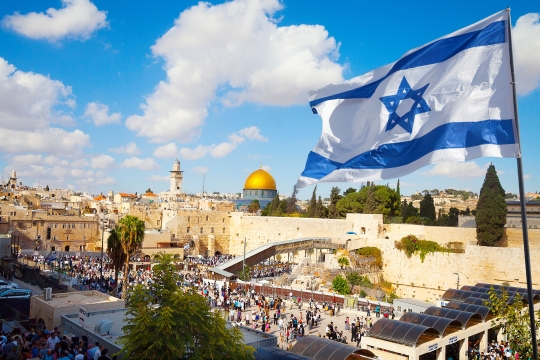
Faith, Justice, and Israel: Being Proud
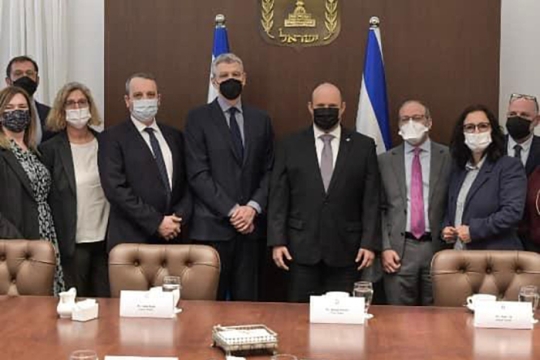
Shabbat Message: A Galvanizing Visit to Israel That Fills Me With Encouragement
